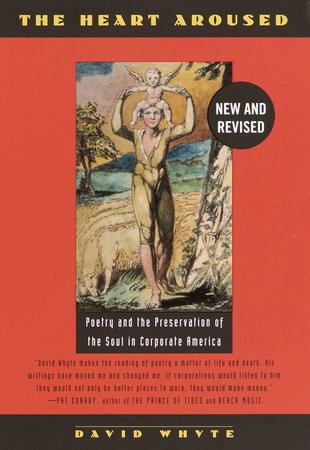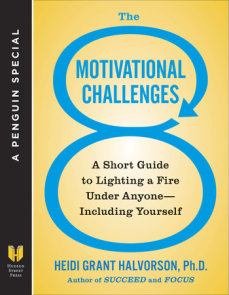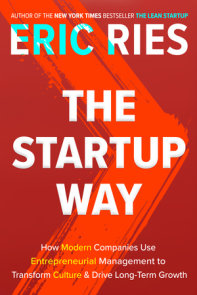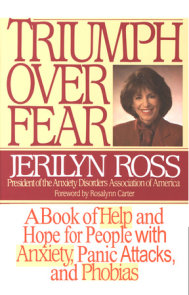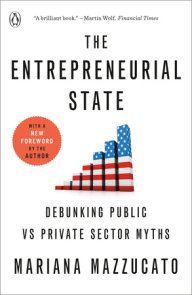READERS GUIDE
Introduction
When The Heart Aroused appeared in hardcover in November 1994, it left readers clamoring for author David Whyte as he crisscrossed the country on the lecture circuit with bestselling authors Clarissa Pinkola Estes (Women Who Run with the Wolves) and Thomas Moore (Care of the Soul). Now available in Currency paperback, The Heart Aroused is poised to reach a new wave of readers. In this peerless book, Whyte shows how the language of prophecy, poetry, and enlightenment give voice to the most creative–yet hidden–desires. He shows that the best way to respond to the current call for creativity in organizational life is to overcome habitual fear and reticence and bring full, passionate, creative human souls, with all their urgencies and unnamed longings, right inside the office. When Whyte, who often consults for corporate clients, walks into an organization, it is not just to advise, strategize, and make recommendations. Instead, he clarifies personal–not organizational–difficulties at work by placing them in the age-old context of poetry and story. To follow Whyte through his brilliant, soulful discussions is to raft the turbulent stream of conflicting currents that make up people’s lives inside American organizations.Only a poet could produce such a provocative analysis of today’s widespread disenchantment with business–or such a daring prescription for using the classics of poetry to revitalize the soul of corporate America.
Questions and Topics for Discussion
1. I wrote The Heart Aroused hoping it would be read in two ways. First, as a good story about the difficulties and dramas of preserving the soul at work–in short, a page-turner; second, as a book that could be studied, contemplated, and discussed with others. I wanted the book to be both a private, almost secret journey mapping unspoken contours of the human heart and a public document stirring us to conversations that might help us to reimagine ourselves more fully in the workplace. To that end, in the spirit of a user’s guide for the paperback edition, I have put forward the following assertions and questions as points of discussion and self-questioning for each chapter. ——————————————————————————– THE PATH BEGINS: Inviting the Soul to Work Understanding our work and destiny in life does not mean figuring out a preordained path for ourselves, but understanding the essential aspects of our own nature that we make room for and then celebrate and elaborate in useful work. Q. What is my heart’s desire in life? What are some of the particularities of the way I like to live? What are the essential qualities that give me a sense of belonging? How can work be a good servant to my essential nature instead of a taskmaster? The word destiny is generally used in the context of the great figures of history: Joan of Arc, Madam Curie, Winston Churchill. Q. What would it take to start using the word destiny in the context of my own life and daily work? How do I grant magnificence to my own journey? How do I see the constraints, responsibilities, and weights on my life as gateways rather than barriers to the life I want for myself? We spend far more time in the workplace than we do with our families, in our places of worship, or out in the natural world. If we are not asking questions of our work that are germane to our personal destiny, we are attempting to live out our lives in the 10 or 15 percent of the waking time left to us. Most of that time is in recovery mode. Q. How do I bring into my work the questions about my own destiny that enliven, embolden, and perhaps even scare me a little? What questions do I need to ask secretly and alone and what questions need support and conversation? ——————————————————————————– Beowulf: Power and Vulnerability in the Workplace Our notions of what is professional behavior and what is not almost always inhibit a full appraisal of the underground currents running through our work and our organizations. Q. What is my own equivalent of Grendel’s mother? What clues or hints do I have as to what I find difficult to confront about myself? What are the things I find difficult to face about my own relationship to my work? What conversational waters must I enter that seem dark and fearful to me? What conversations are unspoken taboos in my organization? What is Grendel’s mother for my organization? Q. Who are the people in the workplace with whom I can discuss matters of the heart? If I do not have a confidant in my workplace, where do I have the conversations that matter? ——————————————————————————– Fire in the Earth: Toward a Grounded Creativity Creativity involves a vital and often fiery participation in life that does not meld easily with our wishes for control and safety. Q. How often do I refuse the first steps toward my creativity because I am not sure who will emerge at the other end? What are my favorite ways of sabotaging myself? What does "fire" feel like in my own life? When I think of my own creativity in full flow, what days or hours of my life do I remember? If I could imagine my own creativity at full flow, how do I imagine or anticipate it would show itself? Having read the story of the Chinese potter at the end of the chapter, what is the work that would bake me to perfection? What is the part of myself that I have been holding back? ——————————————————————————– FIRE IN THE VOICE: Speaking Out At Work The voice is a powerful arbiter of our inner life, our power relationships with others, and a touchstone of faith in the life we wish to lead. Q. What are the essential qualities conveyed by my voice? Is my voice strong enough to represent the inner core of my aspirations to the outer world? What are my mouse sounds? What are my lion sounds? Having read the story beginning this chapter, what story could I tell from my own life to illustrate a time I said Ten instead of Zero? How could I practice leading my voice out into my world and my workplace more fully? How well do I say No to the things for which I do not have a Yes? When in my own life did No blossom into Yes? ——————————————————————————– FIONN AND THE SALMON OF KNOWLEDGE: Innocence and Experience in Corporate America Experience is not gained by erasing our sense of innocence. Our innocence in effect is our willingness to see the world, not as a problem to be solved, but as a profound mystery to be lived and experienced. Q. How much of my day is spent trying to solve the problem and problems of life? How much of my day is spent attempting to live out the mystery of my existence? How much alone time do I give myself for this exploration? How much of my time with others (children, spouse, friends, colleagues) am I truly present? The soul’s journey begins when it understands the true nature of its aloneness, when it understands that it has, in effect, been orphaned. Q. Taking this image of the orphan as a catalyst for my own thoughts, what would I want to claim as my true inheritance? By whom would I like to be raised? What is my lineage? Who are the people, writers, teachers, artists–alive or dead–who have both emboldened and steadied me? What names would I shout out if confronted by Call Mac Cona, so as to be recognized and not slain? Our abilities in the world of strategy and control are meant to be a good servant to, not the master of, the soul’s desires. Fionn’s instincts took him to the clearing where the hard work of-catching the Salmon of Knowledge had already been completed. Q. What does this story mean to me? How do I distinguish between passivity and following my heart’s desires into the clearing? Do my strategic abilities serve me well or am I continually serving them? Do I believe I can have the life I want if only I can figure it out or be clever enough? What does it mean to love doing something? How much do I think I am stealing time when I am tending to the things I love? How willing am I to place the people, places, and things I love first, not only in my home life, but in my work life too? How well have I preserved my innocence? ——————————————————————————– TAKING THE HOMEWARD ROAD: The Soul at Midlife We take the road of midlife not as the beginning of disengagement and retirement but as a newer and more profound path to meaningful work, the work of belonging in a deeper way to those people and things we have taken so long to learn to love. Q. If I am anticipating midlife but have not yet arrived there, what are the images I have of myself around fifty? How do I want to feel in my body? What do I want to have achieved? Who do I want to have become? If I have reached midlife, what image do I carry of myself? How do I feel in my body? What do I feel I have achieved? Who have I become? If in your mind it was possible to take a year’s sabbatical from work to reassess your life, what would you do and where would you go? What questions would you like to answer for yourself? What are my images of retirement? Do I see myself suddenly stepping over a threshold where I will no longer want to work in the same way? The age requirement for retirement is arbitrary and certainly not tailored to the individual. What other measures will I use to help determine my own destiny when I reach the thresholds normally associated with retirement? What does Solomon’s wisdom mean to me in my own life? What does each line of his advice mean for me? Don’t leave the old road for a new one! Don’t meddle in other people’s affairs! Save your anger for the following day! ——————————————————————————– COLERIDGE AND COMPLEXITY: Facing What Is Sweet and What Is Terrible The new science of complexity echoes the wisdom long passed down in the poetic tradition. The way to build a poem, a life, or a lifelike and useful system is to fold meaning into the simplest elements and allow complexity to emerge from their natural self-generation . Q. If I were asked to state the basic principles of my life in the simplest and clearest way possible, how would I articulate them? How much resemblance does my daily work life bear toward these principles? How well does my organization embody the things I deem most important? How do I remember these simple elements on a daily basis; what disciplines do I have for remembering them? How much quiet time do I make for myself in order to remember? Remembering my own life means having faith in the imagination–the images that literally emerge inside myself in order to make sense of the often complex images that surround me. Q. How much time do I spend imagining? What does it mean to have faith in my own images? What is one abiding image inside me in which I could choose to have faith? When chaos reigns around me, how do I react? What instinctual internal images could make a difference to my response? How do I work with others without forming a flock? ——————————————————————————– The Soul of the World: Toward an Ecological Imagination The first step toward preserving the soul in our individual lives is to admit that the world has a soul also, and is somehow participating with us in our work and destiny. Q. How much attention do I pay to the world around me? How self-preoccupied am I? Do I let anything in from the outside at all? How self-preoccupied is my organization? How do I see other people in my organization–are they just a moving backdrop to my own drama or do I really take time to see they have lives and destinies of their own? How much time do I spend in the natural world or in environments outside the world of work that help me put my own struggles in perspective? The mythologist Joseph Campbell said "You must have a room or a certain hour of the day or so, where you do not know who your friends are, you don’t know what you owe anybody or what they owe you–but a place where you can simply experience and bring forth what you are and what you might be…" Q. What is that place, that room, that certain time of the day in my own life?









